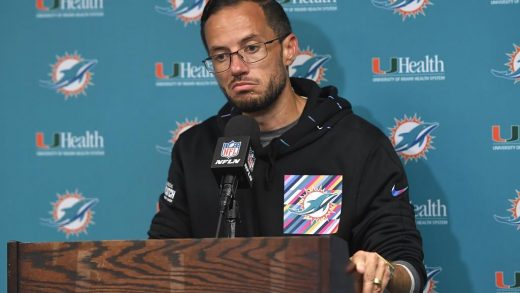Dems move to make South Carolina, not Iowa, 1st voting state

WASHINGTON (AP) — Democrats voted Friday to remove Iowa as the leadoff state on the presidential nominating calendar and replace it with South Carolina starting in 2024, a dramatic shakeup championed by President Joe Biden to better reflect the party’s deeply diverse electorate.
The Democratic National Committee’s rule-making arm made the move to strip Iowa from the position it has held for more than four decades after technical meltdowns sparked chaos and marred results of the state’s 2020 caucus. The change also comes after a long push by some of the party’s top leaders to start choosing a president in states that are less white, especially given the importance of Black voters as Democrats’ most loyal electoral base.
Discussion on prioritizing diversity drew such impassioned reaction at the committee gathering in Washington that DNC chair Jaime Harrison wiped away tears as committee member Donna Brazile suggested that Democrats had spent years failing to fight for Black voters: “Do you know what it’s like to live on a dirt road? Do you know what it’s like to try to find running water that is clean?”
“Do you know what it’s like to wait and see if the storm is going to pass you by and your roof is still intact?” Brazile asked. “That’s what this is about.”
Following Biden’s recommendations, the committee also opted to have New Hampshire and Nevada jointly vote second, a week after South Carolina, followed by Georgia and Michigan, two critical battleground states that would round out the top five in subsequent weeks. All the proposed contests would likely be held in February 2024.
That’s a change from the current calendar, with Iowa holding the first-in-the-nation caucuses since 1972, followed by New Hampshire’s first-in-the-nation primary since 1920. Nevada and South Carolina have gone next since the 2008 presidential election, when Democrats last did a major overhaul of their primary calendar.
The move will still have to be approved by the full DNC in a vote likely early next year, but it will almost certainly follow the rule-making committee’s lead.
The revamped schedule could largely be moot for 2024 if Biden opts to seek a second term, but may remake Democratic presidential cycles in 2028 and beyond. The president has said for months that he intends to run again, and White House aides have begun making staffing discussions for his likely reelection campaign, even though no final decision has been made.
Biden wrote in a letter to rules committee members on Thursday that the party should scrap “restrictive” caucuses altogether because their rules on in-person participation can sometimes exclude working-class and other voters. He told also told party leaders privately that he’d like to see South Carolina go first to better ensure that voters of color aren’t marginalized as Democrats choose a presidential nominee.
Four of the five states now poised to start the party’s primary are presidential battlegrounds, meaning the eventual Democratic winner would be able to lay groundwork in important general election locales. That’s especially true for Michigan and Georgia, which both voted for Donald Trump in 2016 before flipping to Biden in 2020. The exception is South Carolina, which hasn’t gone Democratic in a presidential race since 1976.
The first five voting states would be positioned to cast ballots before Super Tuesday, the day when much of the rest of the country holds primaries. That gives the early states outsize influence since White House hopefuls struggling to raise money or gain political traction often drop out before visiting much of the rest of the country.
Scott Brennan, a rules committee member from Iowa, said “small, rural states” like his “must have a voice in the presidential nominating process.”
“Democrats cannot forget about entire groups of voters in the heart of the Midwest without doing significant damage to the party in newer generations,” Brennan said.
The Republican National Committee has already decided to keep Iowa’s caucus as the first contest in its 2024 presidential primary, ensuring that GOP White House hopefuls — which include Trump — have continued to frequently campaign there.
House Majority Whip Jim Clyburn, South Carolina’s lone congressional Democrat and one of Biden’s top supporters in Congress, said the president called him Thursday to inform him of his push to move his state up.
“I didn’t ask to be first,” Clyburn said. “It was his idea to be first.”
Clyburn’s endorsement of Biden in 2020 boosted the candidate’s flagging presidential campaign just ahead of South Carolina’s primary, which he won big. That helped Biden shake off early losses in Iowa, New Hampshire and Nevada and eventually take the White House.
“He knows what South Carolina did for him, and he’s demonstrated that time and time again, by giving respect to South Carolina,” Clyburn said.
Still, the vote by the rules committee has faced serious pushback, with some states vowing to ignore the changes altogether. That’s despite the panel approving language saying states could lose all of their delegates to the party’s national convention if they attempt to violate new rules.
Iowa and New Hampshire have said laws in their states mandate them going before others, and they intend to abide by those, not DNC decrees.
Nevada, with its heavily Hispanic population, has balked at sharing the second-place slot with New Hampshire, a state 2,500 miles away.
Nevada committee member Artie Blanco’s voice cracked as she argued against the change.
“If we want to build a strong relationship with Latinos,” Blanco said, “then Nevada must stand alone on a date and not have to share that date.”
___
Associated Press writer Meg Kinnard contributed from Columbia, S.C.
Credit: Dems move to make South Carolina, not Iowa, 1st voting state


